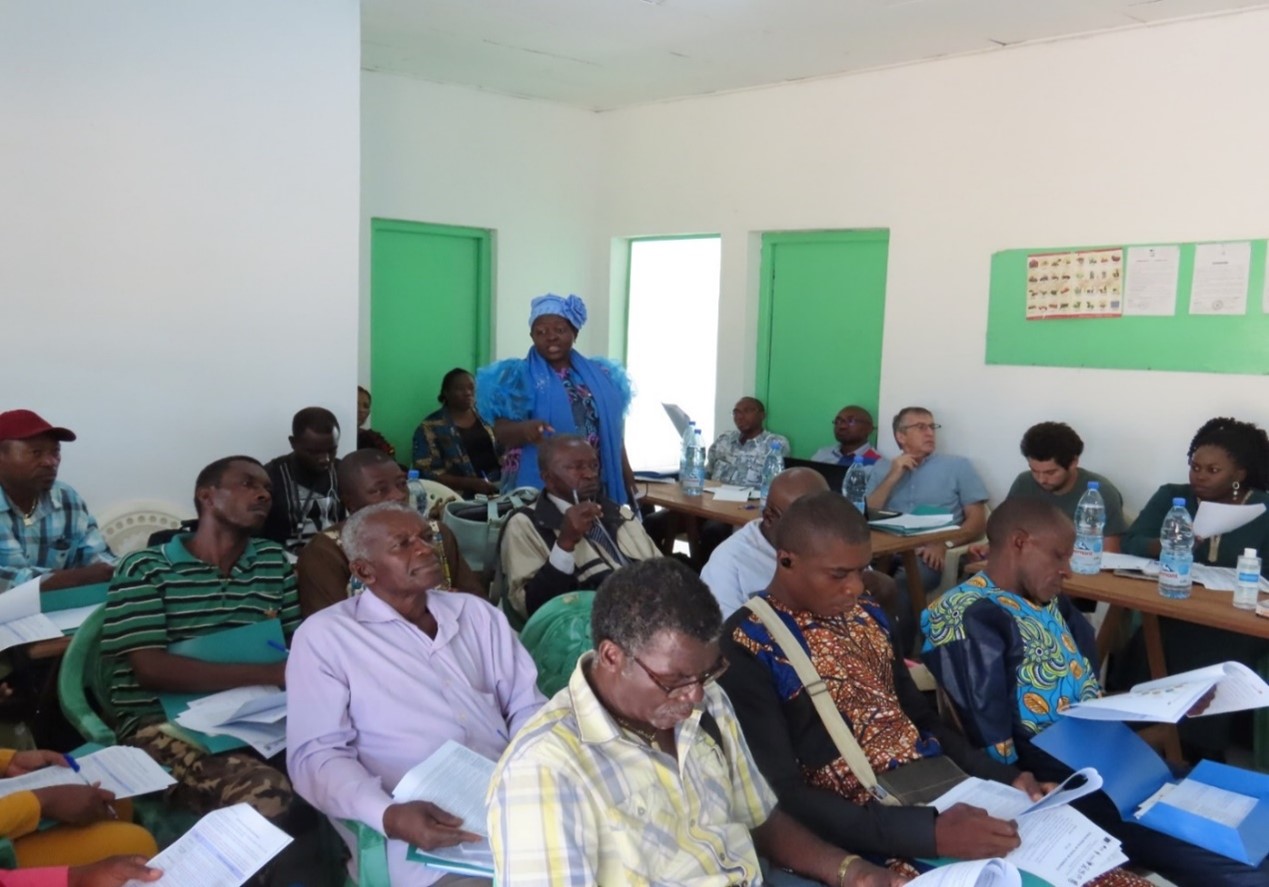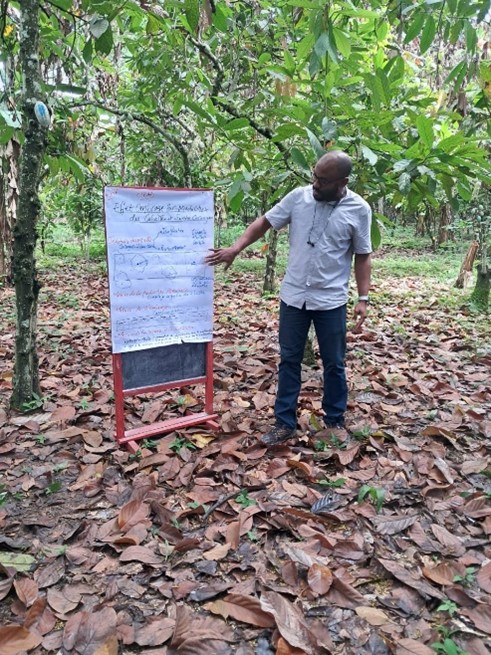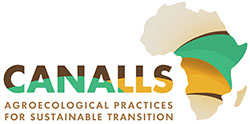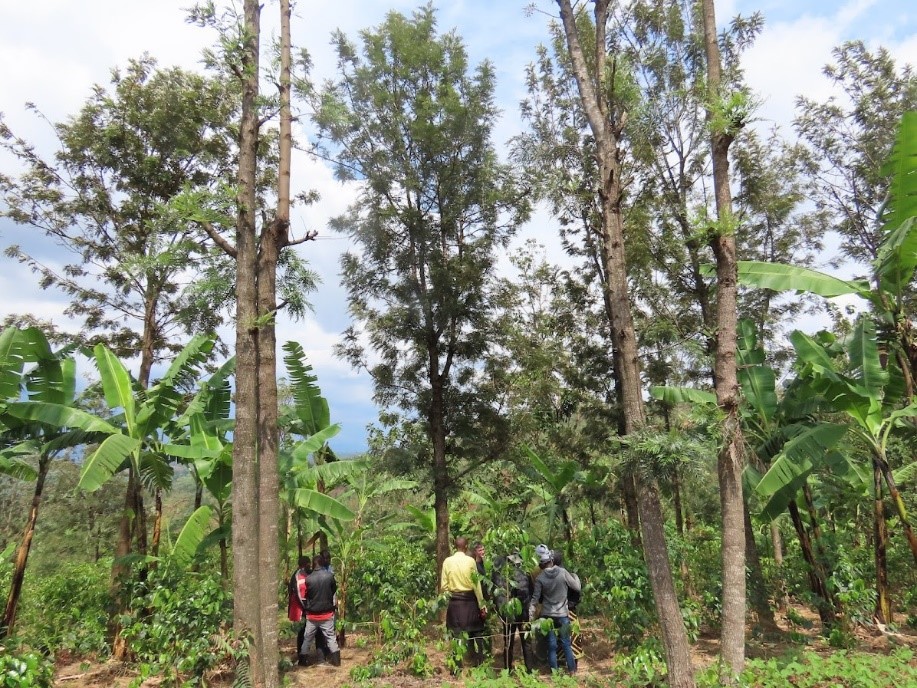Located in Burundi, the Giheta Living Lab is characterized by distinct dry and rainy seasons, with average annual rainfall exceeding 1,100 mm and temperatures averaging 20°C. Coffee is the primary crop cultivated here, with bananas serving as a secondary crop.
Operated by CANALLS’ partner Naturland, the lab comprises 20 members, ensuring gender balance. The Giheta ALL members focus on marketing organic products in local markets, organic agroforestry practices, and local certification of organic products.

Photo 1: A member of Giheta’s ALL presents results of his working group.
Supporting Farmers and Strengthening Value Chains
Engaging smallholder farmers at the start of the value chain for globally renowned products like coffee provides unique insights into their daily challenges and socio-economic conditions. The ALL approach allows for continuous monitoring of the Giheta production process from the ground up. Farmers in Giheta benefit from practices like organic agroforestry—integrating trees with ecological and commercial benefits—which diversifies their income sources. This approach also supports the cultivation of food crops such as beans, soybeans, and cowpeas, enhancing household food security and enabling surplus sales.

Photo 2: Living lab at work
Promoting Local Production and Markets
To strengthen access to local markets, Naturland trained 20 farmer cooperatives in the Participatory Guarantee System (PGS), also known as Kilimohai in Africa. This alternative organic certification scheme relies on trust and social networks, making it accessible for local markets. The training focused on providing an overview of developing PGS systems and stuctures while fostering sustainability within these groups to facilitate local market access.
Traditionally, farmers converted to organic production could sell only their coffee as an organic product on the international market, while crops like beans and pumpkins grown under coffee trees using Naturland's agroforestry approach were sold in local markets as non-organic products. PGS addresses this gap by promoting these crops as organic for the local market, enhancing their value. Through PGS, cooperatives gain international recognition for the quality of their organic coffee while boosting food production for local consumption.
By combining ecological practices, knowledge sharing, and market access, the Giheta Living Lab exemplifies how smallholder farmers can achieve economic and environmental sustainability in the heart of Africa.
CANALLS Project
The CANALLS project is operating eight Agroecological Living Labs (ALLs) across Burundi, Rwanda, the Democratic Republic of Congo (DRC), and Cameroon. These ALLs serve as collaborative spaces where producers exchange knowledge and co-create solutions in organic farming and other key areas of socio-economic life for small-scale farmers. Going beyond research, these labs foster the co-creation of resources and knowledge to support ecological agriculture in Africa's humid tropics.



